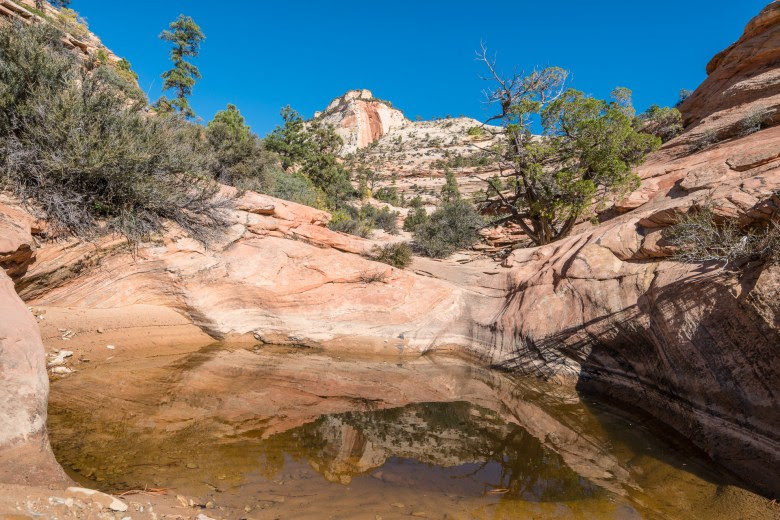 Conservation Groups Oppose EPA Move to Remove Wetlands Protection
Conservation Groups Oppose EPA Move to Remove Wetlands Protection
WASHINGTON, D.C.— The U.S. Environmental Protection Agency (EPA) and U.S. Army Corps of Engineers have proposed removal of Clean Water Act protections for ephemeral streams and intermittent streams and their wetlands.
Such waterways flow in response to rain and wet seasons, and, according to the EPA, comprise 59 percent of all streams in the Lower 48 states; including 81 percent of waterways in Arizona, California, Colorado, New Mexico, Nevada, and Utah.
The proposed change would remove environmental protections for many wetlands associated with these waterways, reserving protections only for ephemeral and intermittent wetlands connected to other waters covered by the Clean Water Act.
Passed in 1972, the Clean Water Act is intended to maintain “chemical, physical, and biological integrity of our nation’s waters.”
Disregarding research
“This disregards the EPA’s own research that shows wetlands and ephemeral and intermittent streams—even those that lack surface connection—provide important biological and chemical functions that affect downstream waters,” maintains the Theodore Roosevelt Conservation Partnership (TRCP).
Tuesday, active EPA administrator Andrew Wheeler denied that research.
TRCP President Whit Fosburgh added, “No matter which party holds the power in Washington, the needs of America’s hunters and anglers have not changed since we supported the 2015 Clean Water Rule—all streams and wetlands are crucial to supporting healthy fish and waterfowl populations that power our sports, and an entire swath of these important habitats does not deserve to be overlooked or written off on a technicality.”
Ephemeral and intermittent streams are the result of rainfall, but sustain their own wetlands and wildlife habitats.
The proposal has drawn condemnation from the American Fisheries Society, who called the joint refusal of both the EPA and Army Corps of Engineers “detrimental to the integrity and security of our fish and wildlife resources.”
American Fisheries Society Executive Director Doug Austen told the TRCP that, “Loss of protections for these waters will have grave ecological consequences for fish and fisheries—and ultimately the communities across the U.S. will lose the economic, social, and cultural benefits that are derived from headwater streams.”
Trout Unlimited, The Izaak Walton League of America, Backcountry Hunters and Anglers, and the World Wildlife Federation (WWF) have all echoed Fosburgh’s sentiments, with WWF CEO Collin O’Mara adding, “No one who loves the outdoors wants to fish a lake covered in toxic algae, duck hunt near a bulldozed wetland, or pitch a tent next to a sewage ditch. Yet more water pollution is exactly what will happen if the administration dismantles clean water protections. It’s bad for wildlife, and it’s bad for the nearly 8 million jobs powered by the outdoor recreation economy.”
Wheeler called the change a clarification to the waterways that the federal government has jurisdiction over. “Our goal is a more precise definition that gives the American people the freedom and certainty to do what they do best: build homes, grow crops, and develop projects that improve the environment and the lives of their fellow citizens.”
The move has been applauded by the National Association of Home Builders, and the American Farm Bureau.


 Advertising
Advertising